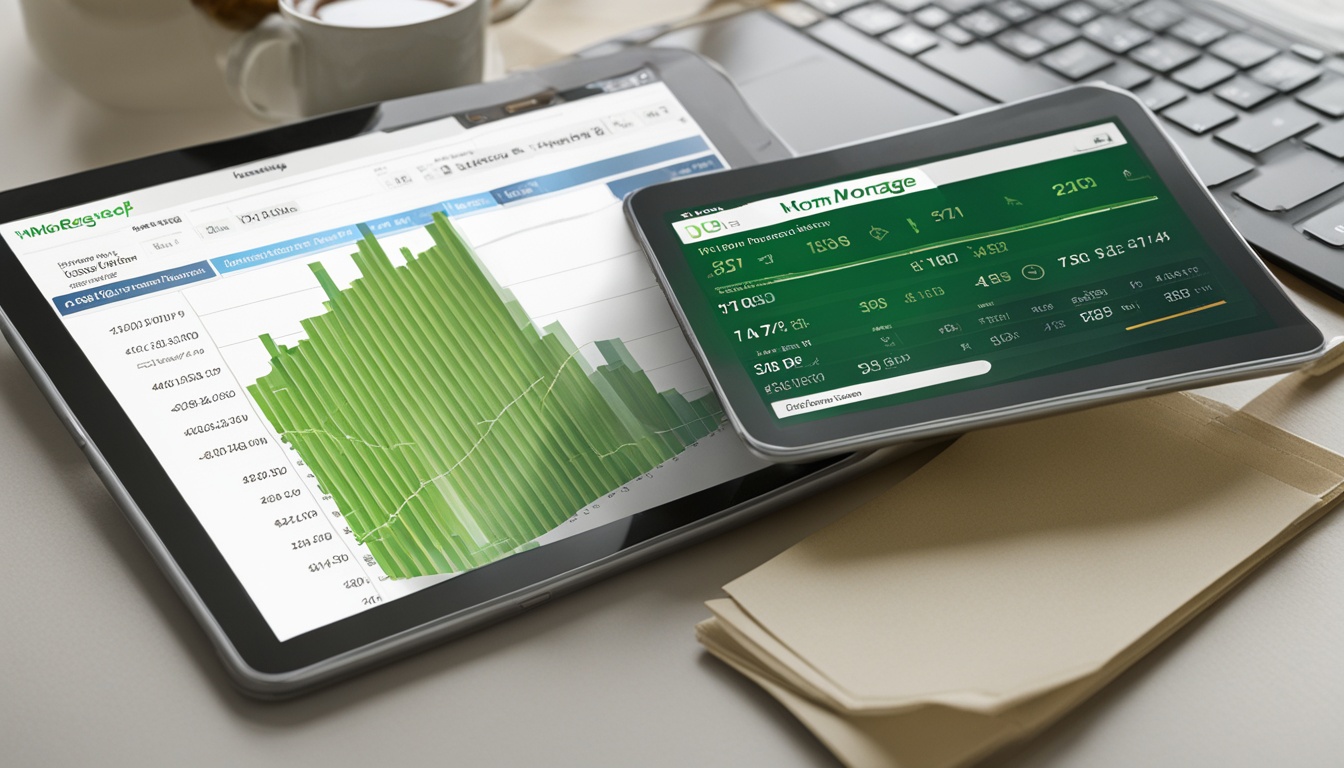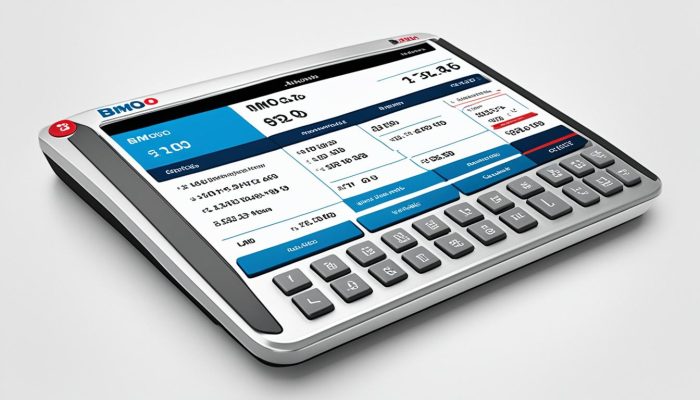A reverse mortgage calculator is key for homeowners thinking about a reverse mortgage. It helps you figure out how much you might borrow based on your home’s equity. Just enter your age, home value, and current mortgage balance into the calculator. It will give you an idea of the funds you could get.
This info is vital for planning your retirement. It shows you what financial resources you have. And how they can make your retirement better.
Key Takeaways:
- Use a reverse mortgage calculator to estimate the loan amount based on your home equity.
- Input details such as your age, home value, and current mortgage balance for accurate results.
- Consider the calculated loan amount when planning for your retirement.
- A reverse mortgage can provide financial resources to enhance your retirement lifestyle.
- Make informed decisions about your reverse mortgage based on the estimation provided by the calculator.
Understanding Reverse Mortgages and Senior Home Equity
Reverse mortgages are a great option for homeowners 62 and older. They let seniors use their home equity to improve their finances and quality of life. The most common type is the Home Equity Conversion Mortgage (HECM). It turns part of your home equity into tax-free cash.
These mortgages have many benefits. Seniors can use the money for living costs, healthcare, or to pay off an existing mortgage. This way, they can stay in their homes and use their equity. It gives them financial freedom, peace of mind, and the chance to age comfortably at home.
Benefits of Reverse Mortgages:
- Access to Home Equity: Reverse mortgages give seniors a flexible way to use their home equity as income.
- Tax-Free Loan Proceeds: The money from a reverse mortgage is tax-free. This helps seniors make the most of their money.
- No Monthly Mortgage Payments: Usually, there are no monthly payments on a reverse mortgage. The loan is paid back when the homeowner sells the house, moves out, or passes away.
- Loan Payoff Option: Seniors can use a reverse mortgage to pay off their current mortgage. This lowers their monthly bills and improves their finances.
- Financial Security: Reverse mortgages can make seniors more financially stable. They help meet expenses and ensure a comfortable life at home.
It’s key to understand reverse mortgages well before getting one. They are complex financial tools. Using reverse mortgage calculators can help figure out how much equity you can access. This can also show how it can help with loan payoff and bettering your finances.
Calculating Reverse Mortgage Eligibility and Interest Rates
When thinking about a reverse mortgage, knowing the rules and how interest rates work is key. To see if you can get a reverse mortgage, several things are looked at.
First, age matters a lot. You must be at least 62 years old to qualify. This rule makes sure reverse mortgages help senior homeowners who have built up equity in their homes.
Also, you need to own your main home. This means the house you want to get the reverse mortgage for must be where you live most of the time.
Having equity in your home is key because it’s what the loan is based on. The more equity you have, the more you can borrow. Tools like reverse mortgage calculators help figure out how much you can borrow based on your home’s value.
Lenders look at your credit history and financial stability too. Even though you don’t pay monthly on reverse mortgages, your credit score matters. It helps make sure you can handle other costs of owning a home.
Interest rates for reverse mortgages change and depend on things like the loan type, the market, and the lender’s costs. It’s smart to look around and compare rates from different lenders to get the best deal.
Using a reverse mortgage calculator lets you see how much you might borrow and how different rates affect your loan. This helps you make smart choices about your money.
Knowing about the rules and how interest rates work with reverse mortgages is key to making good financial choices. By figuring out your eligibility and looking at different rates, you can make choices that fit your goals and needs.
Determining Loan Proceeds and Managing Mortgage Balance
When looking into a reverse mortgage, knowing how loan proceeds work and managing your mortgage balance is key. The loan amount you can get depends on your age, home value, interest rates, and the loan type you pick.
To estimate your potential loan amount, use a reverse mortgage calculator. This tool looks at your home equity and gives you an idea of the loan proceeds you might get. It helps you plan your finances and see if a reverse mortgage fits your needs.
Managing your mortgage balance is important with a reverse mortgage. The loan grows as interest adds up over time. Knowing this helps you make smart money choices and keep enough equity in your home for the future.
It’s crucial to check your mortgage balance often and talk to your lender. They can help you manage your balance and find ways to keep your home equity safe. This way, you can handle everyday costs or save something for your loved ones.
In short, knowing about loan proceeds and managing your mortgage balance is key in reverse mortgages. Use a calculator to see how much you might get based on your home equity. Keep an eye on your mortgage balance to understand interest growth and find ways to keep your equity. This helps you make smart choices and plan for your financial future.
Exploring Reverse Mortgage Options and Benefits for Aging in Place
A reverse mortgage lets you stay in your home and get funds for retirement. Using a reverse mortgage calculator shows you how it can improve your retirement plans.
It helps you figure out how much you can borrow. This way, you can pay for expenses, make your home safe for aging, or have money for surprises. Retirement planning gets easier with a reverse mortgage.
With a reverse mortgage, you can see how much you can borrow from your home’s value. This helps you plan your retirement better. You can pay off debts, go on a dream vacation, or have steady money in retirement.
Benefits of a Reverse Mortgage for Aging in Place
- Stay in the comfort of your own home: Aging in place lets you keep your familiar home, friends, and freedom.
- Financial flexibility: Use your home’s equity for bills, medical costs, or emergencies.
- Home modifications: Get a loan to make your home safe and easy to move around in as you get older.
- Supplement retirement income: You can get money in different ways, like a big sum, monthly, or a credit line. This helps you manage your money better and add to your retirement income.
- No monthly mortgage payments: Unlike regular mortgages, you don’t pay back the loan every month. The loan is paid back when you sell your home, move, or pass away.
Looking into reverse mortgages and their benefits can help you make a smart choice for your retirement. To find out more about how a reverse mortgage can help you age in place, check out this link on aging in place and its perks.
Conclusion
Using a reverse mortgage calculator is key to planning your retirement. It helps you figure out how much money you can get from your home’s value. This tool gives you the info you need to make smart choices for your future.
When you use a reverse mortgage calculator, think about interest rates and who can qualify. This way, you can see how much money you might get. Knowing the perks of a reverse mortgage, like staying in your home while getting money, can also help your retirement plans.
Begin using a reverse mortgage calculator now to manage your retirement better. By using your home’s value, you can make sure you have a good future. And you can still enjoy living in your home.
FAQ
What is a reverse mortgage calculator?
A reverse mortgage calculator helps homeowners figure out how much money they might get. It looks at your age, home’s value, and current mortgage to estimate your potential funds.
Who is eligible for a reverse mortgage?
You need to be 62 or older, own your home, and have enough equity to get a reverse mortgage. Lenders also check your credit and financial stability to see if you qualify.
How do interest rates affect reverse mortgages?
Interest rates for reverse mortgages change and depend on things like the loan type, market conditions, and the lender’s fees. These rates can impact how much you can borrow and your future payments.
How are loan proceeds determined?
The amount you can get from a reverse mortgage depends on your age, home’s value, current interest rates, and the loan type. A calculator can give you an idea of how much you might get.
How can a reverse mortgage benefit aging in place?
Reverse mortgages help seniors stay in their homes by giving them money for retirement needs. This can cover living costs, healthcare, home changes, or a financial backup for unexpected events.



